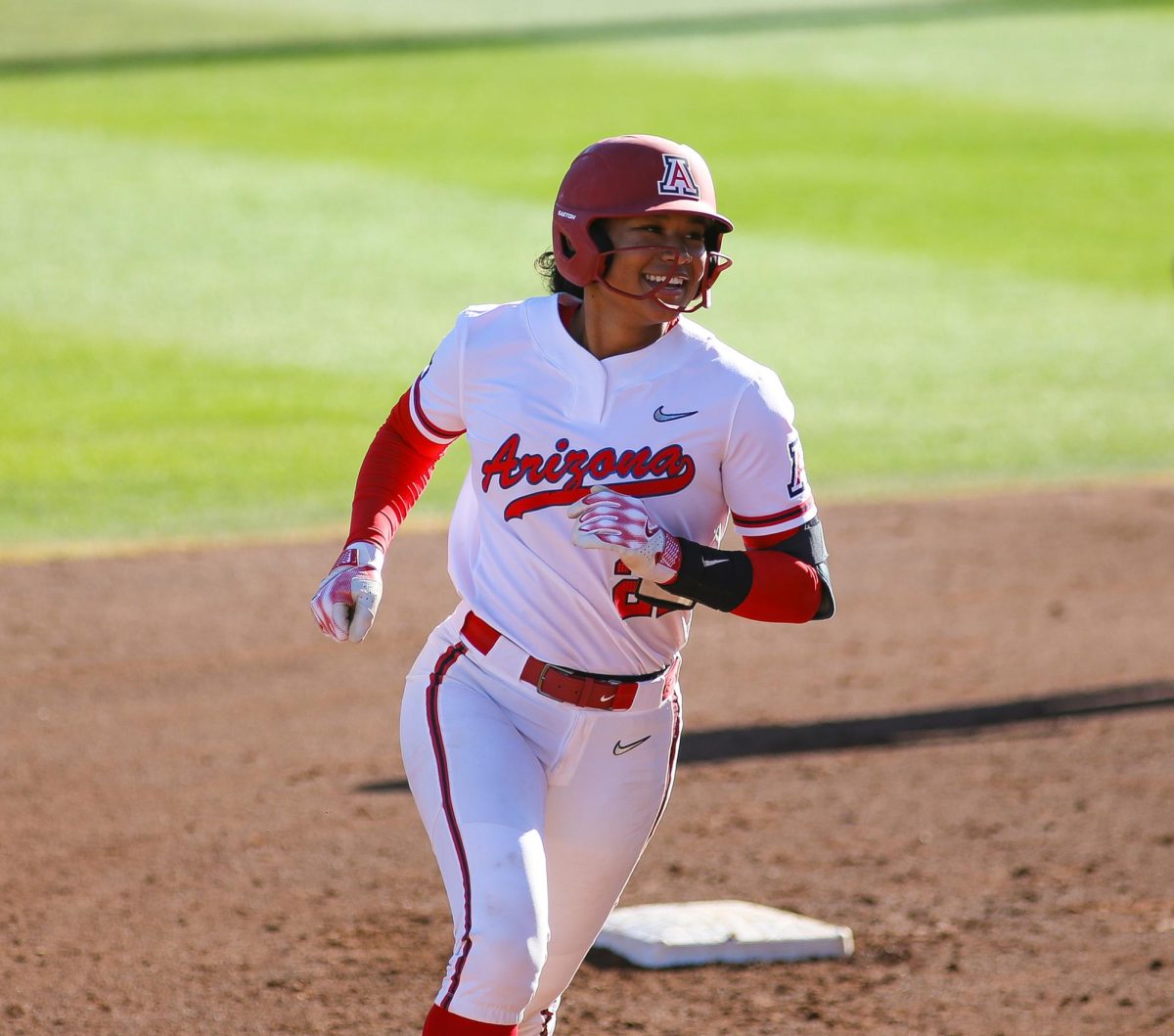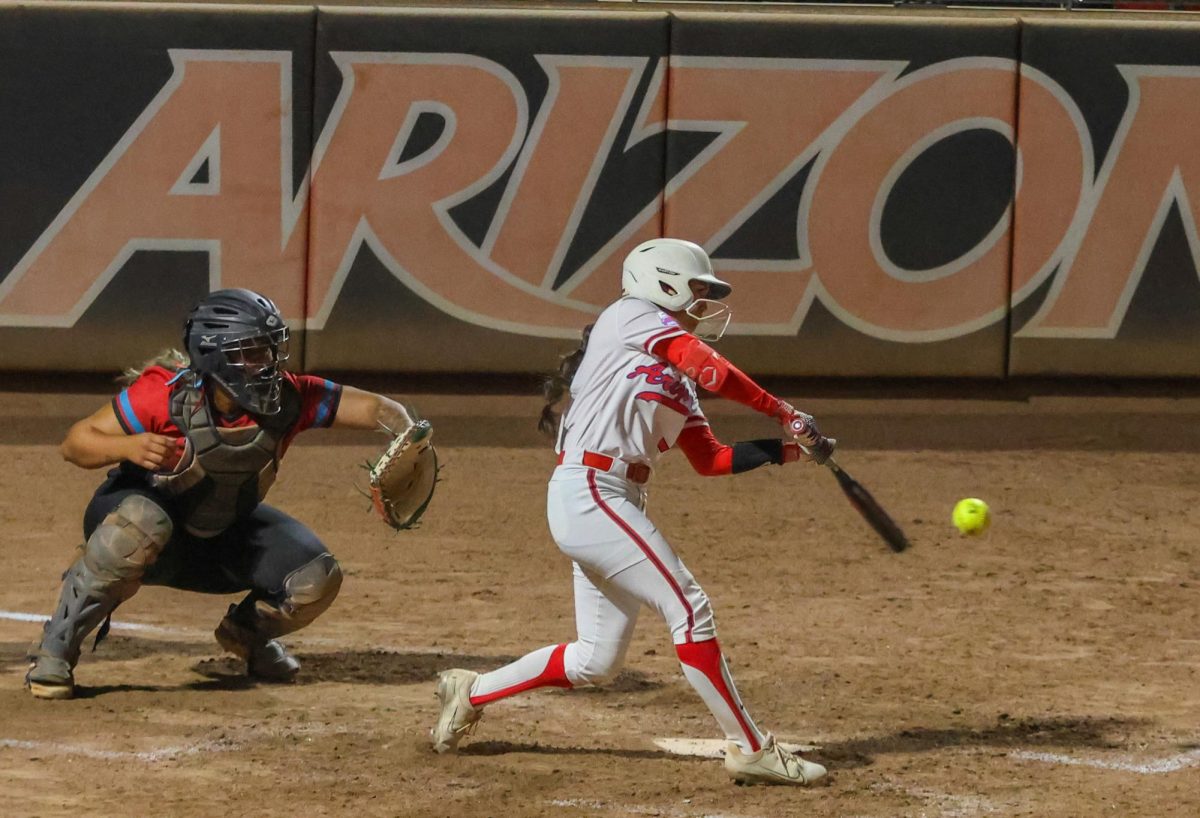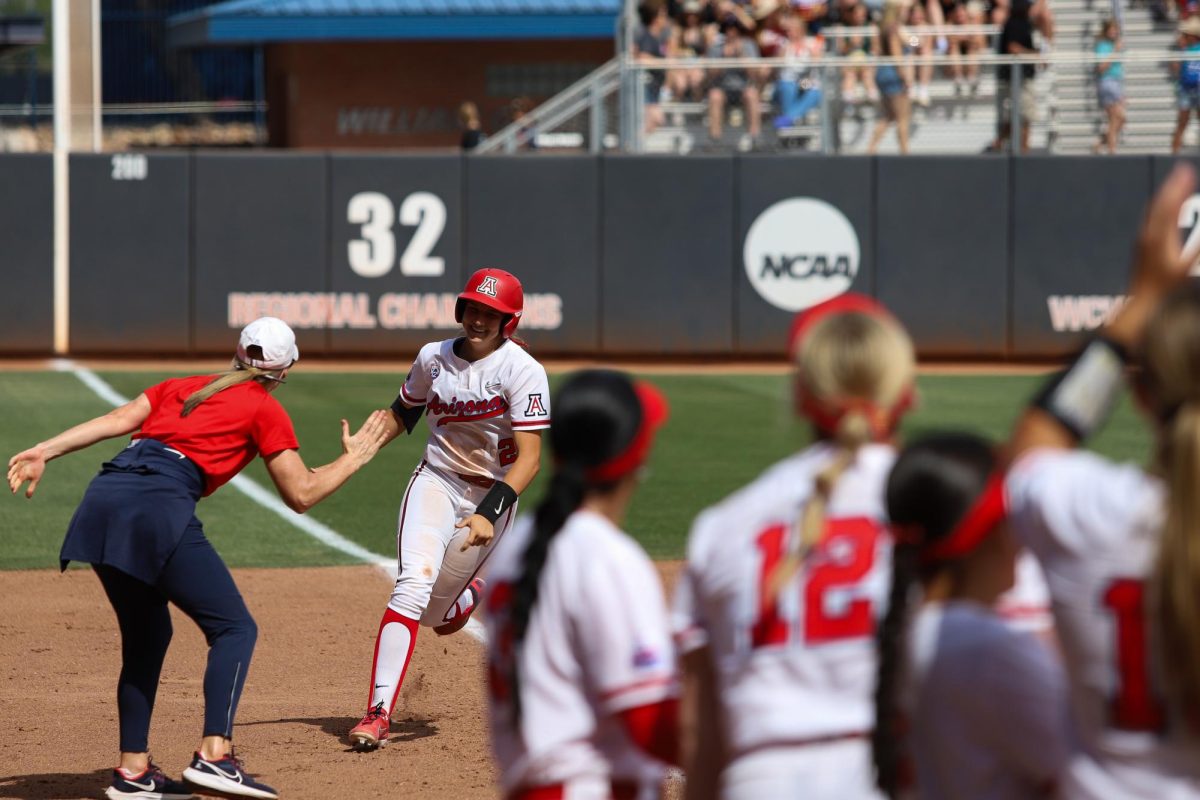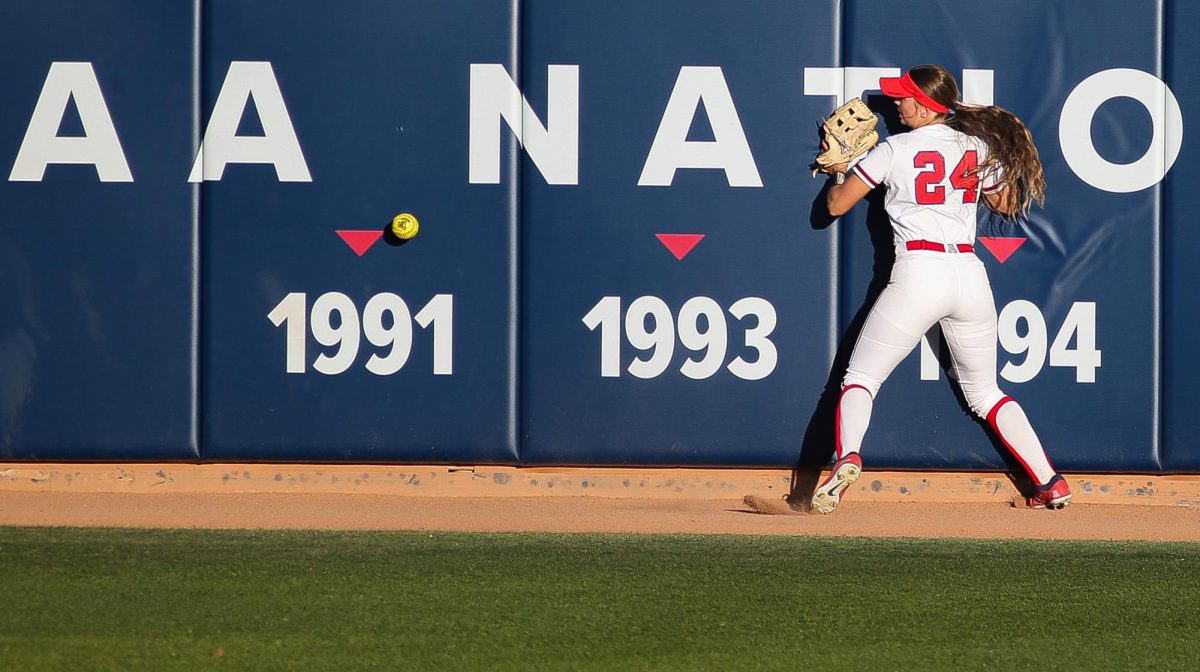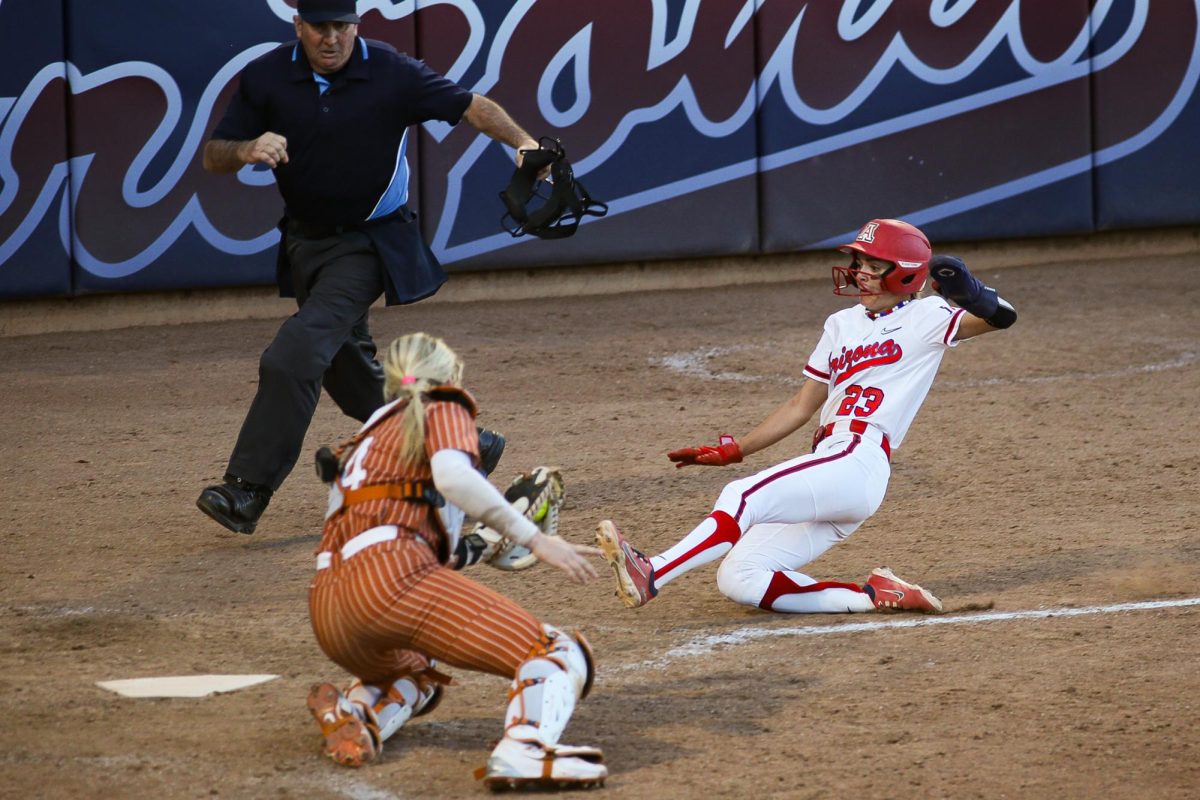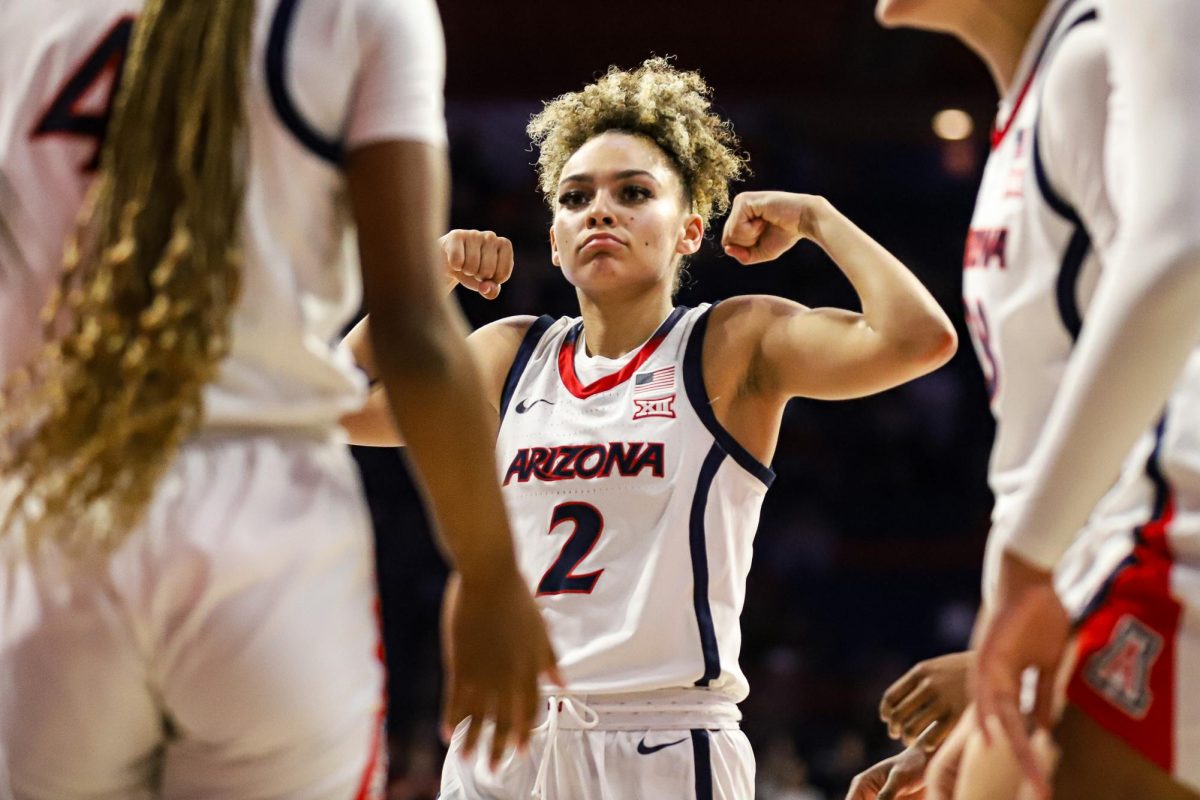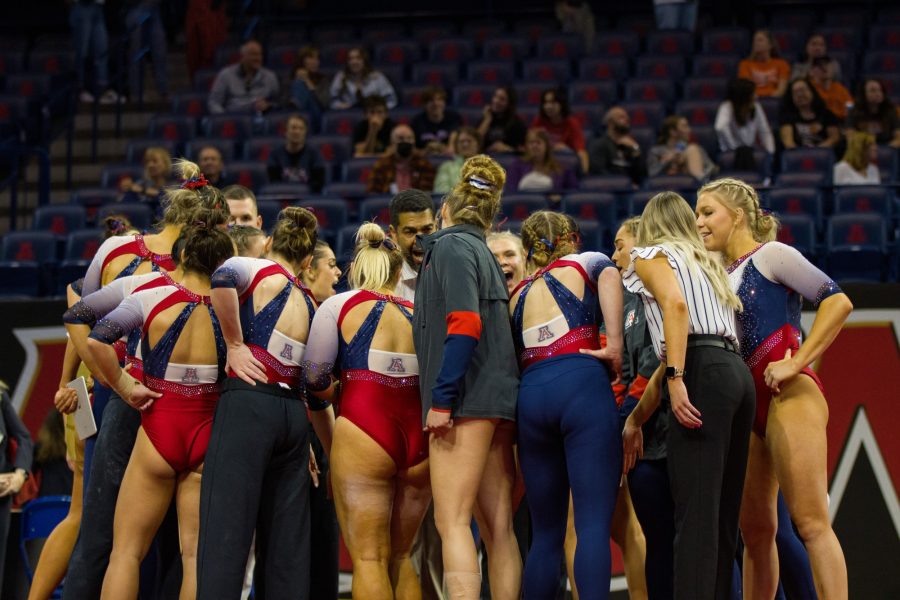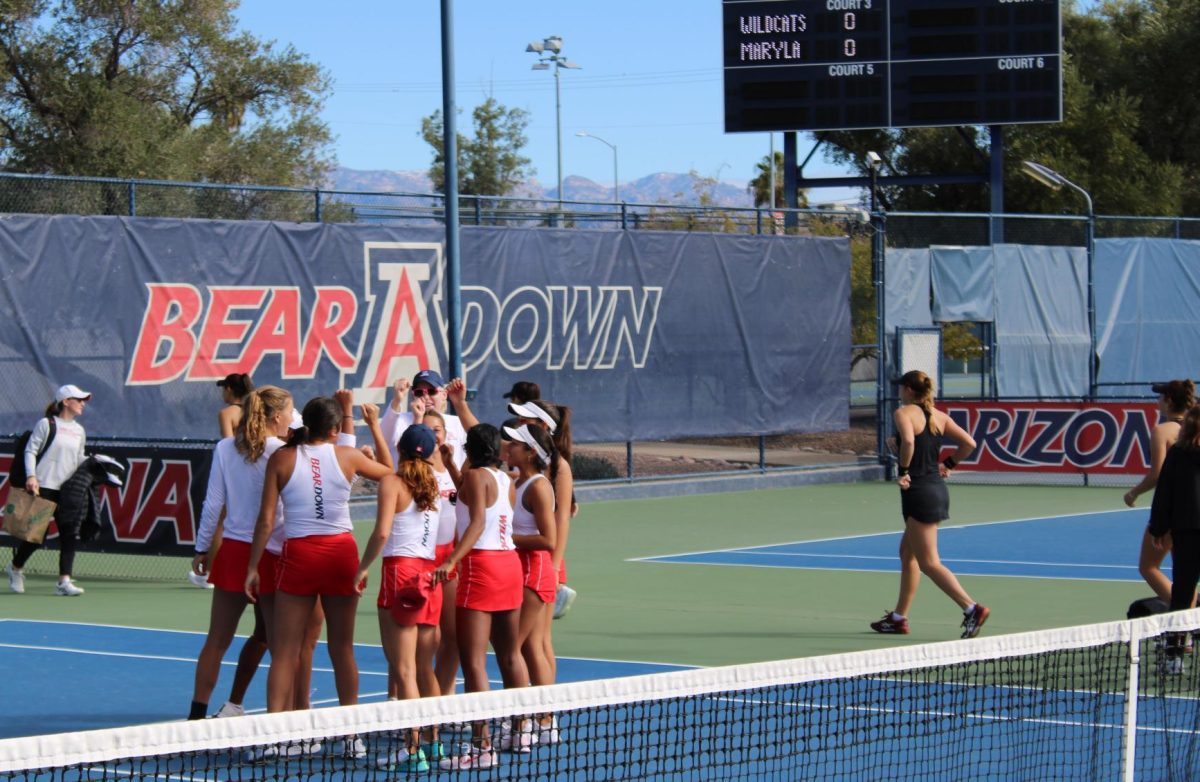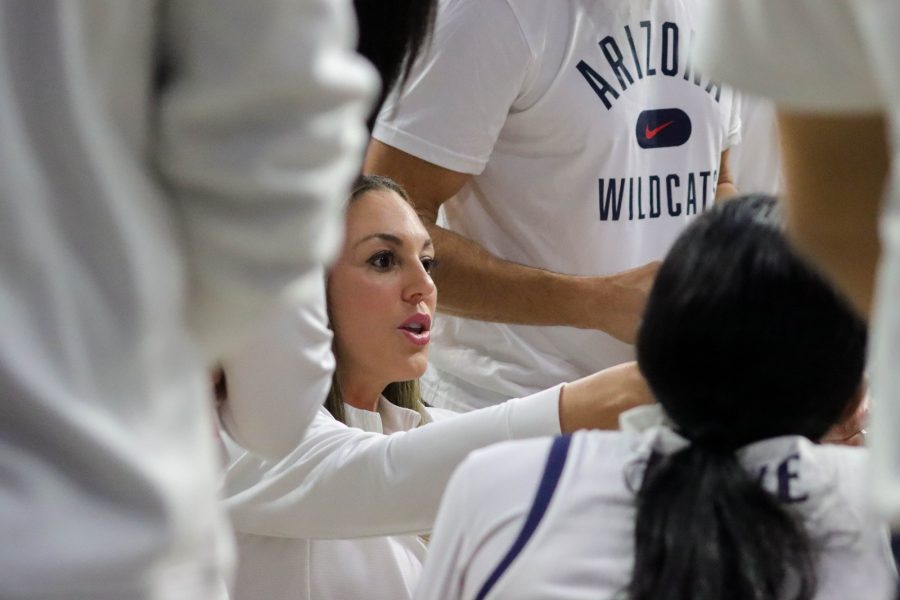Pro: They don’t play the World Series at Hillenbrand
For the Arizona softball team, history has proven that streaking through home games at Hillenbrand Stadium hardly leads to postseason success.
It’s as simple an argument as feeling good about a numerical record versus feeling confident based on the lessons learned through a traveled road. Learning to win on the road against quality competition holds priority over building momentum by riding the high of the appreciative Arizona crowd.
Relying on offense and running off with a 23-3 home record in 2009 — including home winning streaks of 6-0 and 9-1 — last season’s Wildcats rolled into the Women’s College World Series on a high despite lacking a certified ace in the circle. Hillenbrand Stadium’s friendly confines and Tucson’s thin air helped produce a NCAA-record 134 home runs, making up for the lack of short-game scoring and strikeout pitching.
But that record statistic meant nothing in the end.
A deadly home win percentage didn’t translate to success in Oklahoma City, and a 23-14 combined away and neutral site record hinted that Arizona might not handle top-ranked teams when it traveled to the WCWS.
It became true.
Discounting the lack of steady pitching, Arizona’s offense sputtered in losing to Florida and Alabama, who combined to batter the Wildcats 17-0 — the fantastic home record was nothing but quite possibly an over-inflated ego booster.
That’s not to say the Wildcats don’t have a better home versus road record year after year.
It’s simply evidence that long homestands won’t make much of a difference down the line.
Sure, the Wildcats could put up less-than-stellar numbers on the road, but when it comes down to it, championship level teams will at least know what to expect when they travel to hostile territory.
No need to falsify a win percentage to make them feel good about themselves.
Confidence in experience rather than confidence in a number is key.
— Kevin Zimmerman is a journalism junior. He can be reached at sports@wildcat.arizona.edu.
Con: On the road again
Although the road may give the No. 2 Arizona softball team experience that it will need when the postseason starts, playing away from Hillenbrand Stadium for long periods of time may be detrimental to the Wildcats in the long run.
For starters, Arizona is also suffering from injuries for two players who have consistently started in head coach Mike Candrea’s lineup. Time at home could help both Baillie Kirker and Karissa Buchanan nurse their injuries.
Historically, the Wildcats are nearly unbeatable at home, at 25-3 at home in both 2008 and 2009.
But this season, bad weather has stifled Arizona’s ability to get in a rhythm at Hillenbrand Stadium. Rain and field conditions have interrupted a series with Missouri, Idaho and St. John’s. Arizona has only one more upcoming non-conference series with University of Texas, El Paso at home this season.
Because the pace in home season has been choppy at best, the amount of consistent road play could catch up with the Wildcats and fatigue could cause losses that normally would be wins.
Arizona will spend a total of four straight weekends playing away from Hillenbrand Stadium, including opening the Pacific 10 Conference schedule.
And because of the way conference games are scheduled this season, Arizona will host or play a three-game series with every other team in the Pac-10. This means that instead of having at least one game against every other team at Hillenbrand, like in previous seasons, the Wildcats will not have the advantage of playing each team at least once at home.
They will only host Stanford, Oregon State and UCLA, while having to play at ASU before traveling to Washington, arguably the Wildcats’ toughest competition in the Pac-10.
In a conference where there is very little room for error, even Arizona isn’t able to ground themselves with victories at home early in the Pac-10 season, making playing in a competitive conference that much harder.
—Nicole Dimtsios is a journalism sophomore. She can be reached at sports@wildcat.arizona.edu




